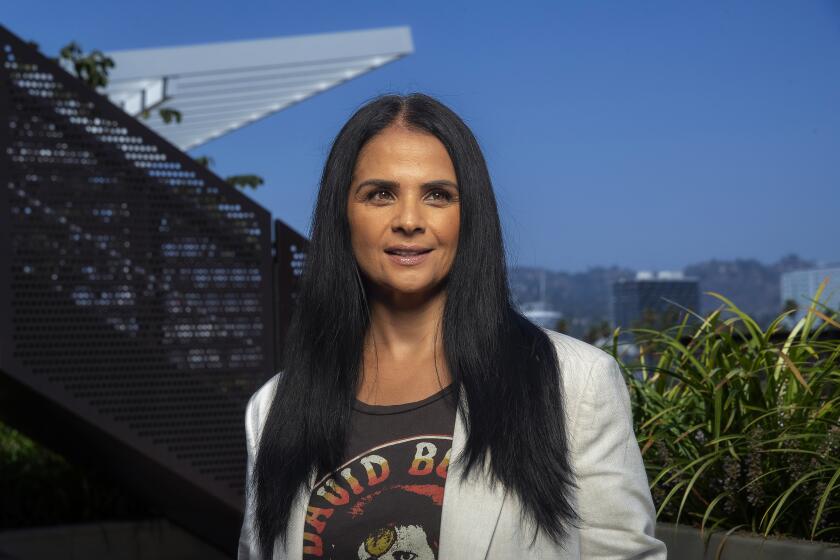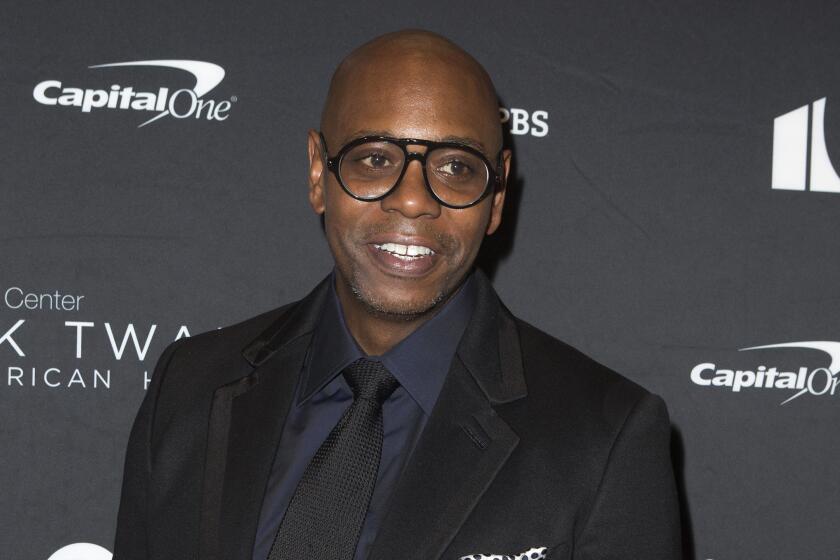‘Squid Game’ fuels Netflix profits and subscriber growth
- Share via
Helped by the breakout hit “Squid Game,” Netflix on Tuesday reported higher quarterly profit and more subscriber growth than expected.
The Korean series, in which characters desperate for money enter a deadly competition, was viewed by 142 million households in its first four weeks — the largest series launch in Netflix history, the company said. The program ranked first in 94 countries, including the U.S.
The show’s popularity helped Netflix add 4.38 million subscribers in the third quarter, up from 2.2 million a year earlier. Analysts had expected the company would add 3.78 million paying subscribers in the quarter.
The streamer’s revenue rose 16% to $7.48 billion in the third quarter, compared with a year earlier. Net income was $1.45 billion, up from $790 million a year earlier, and easily surpassed analyst estimates.
The subscriber growth validates Netflix’s strategy of expanding its investment in foreign language titles and local stories. Under the leadership of Bela Bajaria, who was promoted last year to head of global TV, the company has greenlighted such titles as reality dating series “Indian Matchmaking” and German drama “Barbarians,” which have resonated globally among its 214 million subscribers.
“Squid Game” was released Sept. 17. Other popular titles in the quarter included Season 5 of the crime drama “La Casa de Papel,” seen by 69 million households; and Season 3 of the comedy “Sex Education,” which was viewed by 55 million households in the first four weeks, Netflix said.
“Our team recognized something that nobody else did and created an environment for that creator to make a great show,” Netflix co-Chief Executive Ted Sarandos said during an earnings presentation. His colleague, co-CEO Reed Hastings, wore a “Squid Game” track suit during the presentation.
“‘Squid Game’ is representative of what we see is years of execution on a very well planned strategy,” said Michael Morris, a senior managing director at Guggenheim Partners.
Netflix’s Global Head of TV, Bela Bajaria, discusses the company’s programming strategy and why foreign-language shows are taking off on the platform.
Some foreign-language shows can cost less than U.S. programs. For example, “Squid Game” cost Netflix $21.4 million, compared with the $24.1 million that Netflix had paid stand-up comic Dave Chappelle for his special, “The Closer,” according to Bloomberg. “The Closer,” which was released Oct. 5, was viewed by a much smaller audience pool of at least 10 million people, Bloomberg reported last week.
Netflix has received substantial backlash from controversial remarks Chappelle made in his special about trans people, which some believe could cause further violence toward the trans community. Some entertainers, including Australian comedian Hannah Gadsby, have criticized Netflix’s stance on the issue.
Netflix says it does not plan to take down the special and does not believe it incites violence. Some have praised the company for backing the creative vision of its talent, while others have slammed the streamer for not standing with its concerned trans employees.
On Wednesday, trans employees at Netflix and their supporters plan to hold a walkout followed by a rally in Hollywood. Among their demands is for Netflix to add a disclaimer in front of transphobic content.
The controversy has not affected Wall Street’s outlook for the company, whose shares edged up 0.2% to $639 on Tuesday.
“The Closer” was No. 8 among Netflix’s top 10 programs in the U.S. as of Monday.
“Netflix’s brand feels like it came out on top,” said Larry Adams, chief executive at LVA, a New York marketing agency. “The truth is standing behind your creators is the hallmark of a great partner.”
LGBTQ+ employees behind Netflix’s ‘Most’ Twitter account say ‘the last couple of weeks have been hard’ after the release of Dave Chappelle’s ‘The Closer.’
On Monday, Hastings declined to comment on the organizers’ demands when he was asked about it during a discussion on philanthropy at the Milken Institute Global Conference in Beverly Hills.
“I’ve always kept the two worlds separate,” Hastings said. “When I’m in philanthropy, I don’t talk about Netflix or try to promote Netflix or answer questions on Netflix.”
On Tuesday evening, however, Sarandos expressed regret over his handling of the controversy surrounding “The Closer,” telling the Wall Street Journal he “screwed up” in sending out emails that defended the comedy special and its popularity on Netflix.
“What I should have led with in those emails was humanity,” Sarandos said in the interview. “I should have recognized the fact that a group of our employees was really hurting.”
Critics accuse Dave Chappelle’s Netflix special of transphobia. Here’s what some LGBTQ comics think
Although it faces growing competition from Walt Disney and other rivals, Netflix enjoys a head start in foreign markets.
The Los Gatos, Calif., company recently announced price increases on subscriptions in New Zealand, the Netherlands and other countries.
“The price increases are a sign of strength, as is the ability to create a hit like ‘Squid Game’ that can catch fire across the entire world,” said Berna Barshay, an analyst at Empire Financial Research.
The popularity of “Squid Game” is inseparable from South Korea’s very real crisis of mounting household debt, gaping inequality and a weak social safety net.
Netflix has been investing heavily in growing its intellectual property, buying Roald Dahl Story Co., which manages the rights of the late author’s works, for an undisclosed price. It’s also rolling out mobile games for free to its members. Last month, Netflix bought Glendale game developer Night School Studios.
Analysts see gaming as a way for the company to entice more members of a household to spend time on its platform.
More to Read
Inside the business of entertainment
The Wide Shot brings you news, analysis and insights on everything from streaming wars to production — and what it all means for the future.
You may occasionally receive promotional content from the Los Angeles Times.













